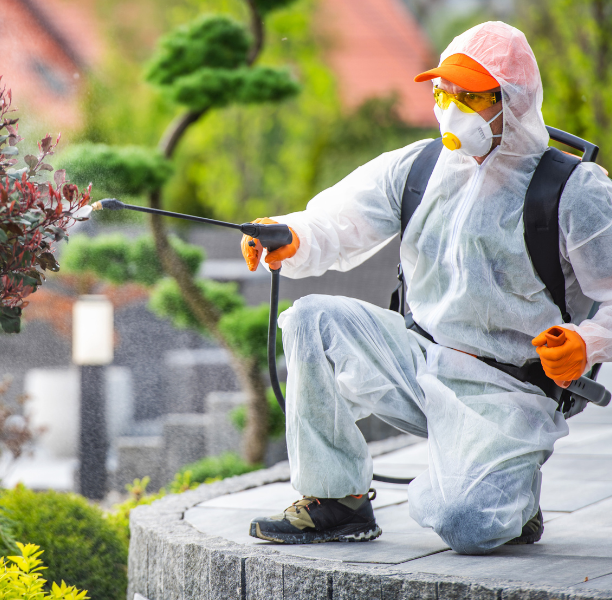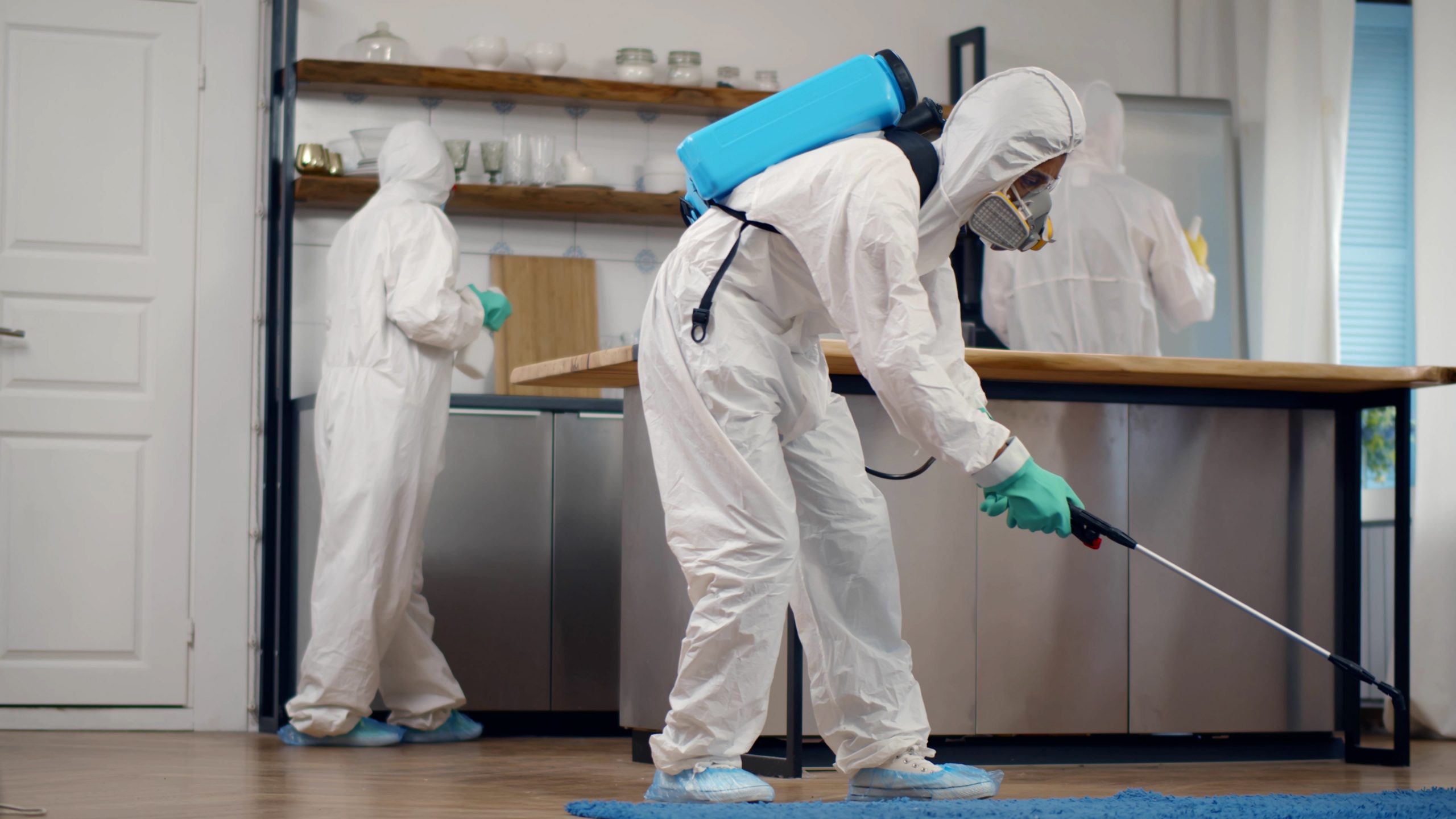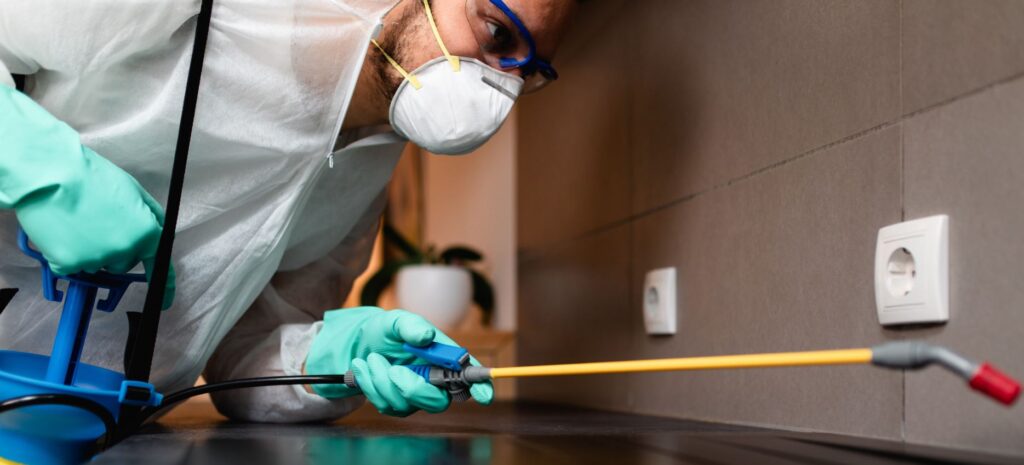Safe and Trustworthy Insect Control for Lasting Protection
Reliable parasite monitoring requires a multifaceted approach that balances eco-friendly integrity with the requirement for efficient pest reductions. The nuances of these approaches may not be immediately clear, triggering a closer examination of the techniques that can lead to sustainable parasite control results.
Comprehending Parasite Control Techniques
Insect control includes a variety of techniques focused on managing and removing undesirable insects and rodents that can threaten both wellness and building. Comprehending these techniques is important for effective pest management.
The main classifications of bug control approaches consist of mechanical, organic, and chemical strategies. Mechanical approaches entail physical obstacles and catches to avoid parasite entrance and capture undesirable types. Utilizing screens on windows or employing sticky traps can considerably decrease insect populations without introducing harmful substances - exterminator coquitlam.

Chemical parasite control is commonly the most identified technique, making use of chemicals to eliminate parasites. These chemicals can be efficient however must be utilized with caution to stay clear of negative effects on non-target varieties and the environment.
Advantages of Eco-Friendly Solutions
Just how can eco-friendly solutions change pest control methods? The fostering of environment-friendly bug control techniques supplies various advantages, considerably boosting the effectiveness and security of parasite management (exterminator coquitlam). First of all, these remedies utilize all-natural ingredients, decreasing the dependence on dangerous chemicals that can present threats to human health and the atmosphere. This shift not just secures households and pet dogs but also lessens the capacity for dirt and water contamination.

One more benefit is the favorable effect on regional biodiversity. Green options are designed to target specific parasites while maintaining valuable pests and wild animals, promoting a well balanced community. This approach straightens with the expanding customer demand for lasting methods, enhancing the credibility of parasite control providers.
Integrated Bug Monitoring Methods
The application of green remedies naturally brings about the adoption of Integrated Bug Management (IPM) methods, which further enhance pest control effectiveness. IPM is a holistic technique that incorporates multiple techniques to manage bug populaces while reducing ecological influence. This method highlights the usage of biological, cultural, mechanical, and chemical controls, making certain a sustainable and balanced approach of bug monitoring.
One essential facet of IPM is the detailed assessment of parasite activity and environmental problems. By keeping track of pest populations and identifying their life cycles, practitioners can apply targeted interventions that interfere with the bug's environment or lifecycle, decreasing dependence on chemical pesticides. Additionally, social practices such as plant rotation and environment fleas control can considerably diminish parasite facility and recreation.
One more critical element is using biological control agents, such as beneficial bugs or microbes, which can naturally suppress insect populaces. When chemical applications are necessary, IPM prioritizes using low-risk chemicals and applies them selectively, lessening exposure to non-target microorganisms and human beings.
Including IPM methods not only improves pest control effectiveness yet additionally advertises a much safer environment, lining up with the growing demand for sustainable techniques in pest monitoring.
Safe Practices for Home Owners
Comprehending the value of risk-free techniques in insect control can empower property owners to effectively manage parasite problems while safeguarding their wellness and the atmosphere. Implementing precautionary steps and non-toxic approaches is important in decreasing direct exposure to hazardous chemicals.
Home owners ought to initially assess their atmosphere for problems that bring in insects, such as standing water, mess, and food waste. Regularly cleansing and sealing entry factors can hinder insects from getting into the home. Utilizing natural deterrents, such as essential oils or diatomaceous earth, can give efficient alternatives to chemical pesticides.
When chemical therapies are required, property owners should select products that are especially identified as safe for household use. It is necessary to adhere to application standards meticulously to avoid too much exposure. In addition, using targeted treatments in areas where bugs are identified, rather than covering spraying, can substantially lower chemical use.
Finally, keeping open communication with pest control specialists is essential. Property owners need to ask about the safety and security of products utilized and request environmentally friendly choices whenever possible. By embracing these secure practices, house owners can develop a healthier living atmosphere while effectively go to this website handling parasite problems.

Tips for Long-Term Protection
Establishing a parasite monitoring technique that highlights long-lasting defense can considerably enhance the performance of the secure techniques previously reviewed. To accomplish this, homeowners need to execute regular assessments of their building, concentrating on concealed areas such as attic rooms, basements, and crawl rooms. Early detection of pest activity is critical in avoiding problems from taking hold.
These methods lower attractants that draw pests right into the home. Sealing access factors, such as fractures around doors and home windows, can successfully obstruct prospective insect access.
Landscape design needs to likewise be considered; keeping plants cut and preserving a distance between plant life and the home lessens concealing places for insects. Making use of natural deterrents, such as crucial oils or diatomaceous planet, can further prevent infestations without turning to harsh chemicals.
Finally, collaborating with an expert parasite control service for periodic examinations can provide an additional layer of security. These experts can provide customized recommendations and progressed treatments, making certain that your home remains secured against bugs in the long-term.
Final Thought
In final thought, secure and trusted pest control requires a multifaceted approach that emphasizes environmentally friendly methods and integrated pest administration. By carrying out all-natural deterrents, performing normal assessments, and maintaining proper hygiene, property proprietors can considerably reduce bug populations while shielding helpful insects and the setting. Partnership with professional bug control services boosts the efficiency of these strategies, ensuring customized solutions that offer lasting protection and tranquility of mind against future invasions.
Effective parasite management calls for a multifaceted technique that balances environmental honesty with the requirement for effective bug suppression. The fostering of green insect control methods provides numerous advantages, considerably improving the efficiency and safety of parasite administration.The implementation of environmentally friendly solutions normally leads to the adoption of Integrated Pest Administration (IPM) approaches, which further enhance insect control effectiveness. use this link exterminator coquitlam. By monitoring insect populations and determining their life cycles, experts can apply targeted interventions that disrupt the insect's environment or lifecycle, reducing reliance on chemical pesticides.In conclusion, reliable and safe pest control requires a multifaceted approach that emphasizes environment-friendly techniques and incorporated parasite monitoring